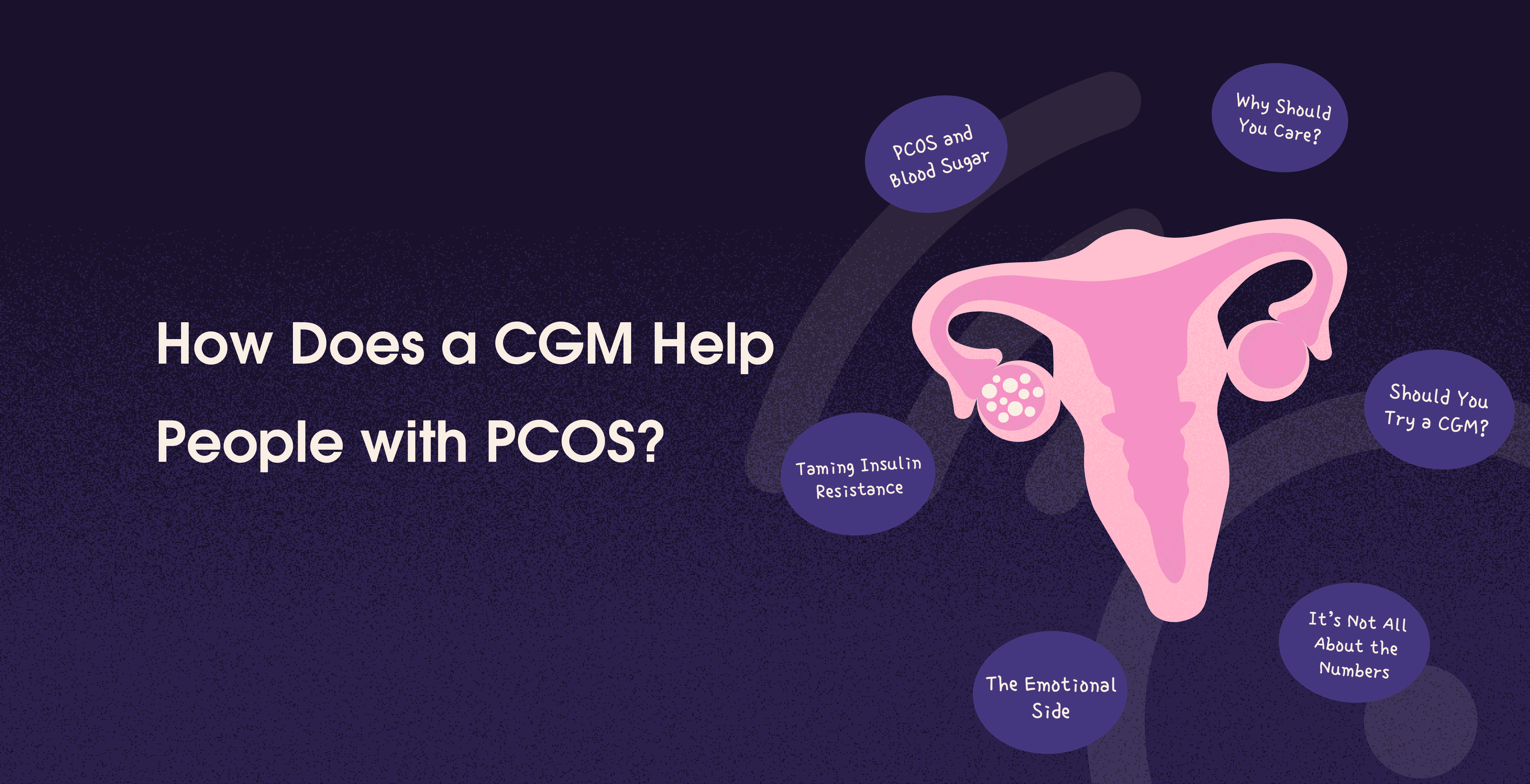Common Symptoms of Hormonal Imbalance and How to Identify Them
Sep 27, 2024
Sayfali Rawlani
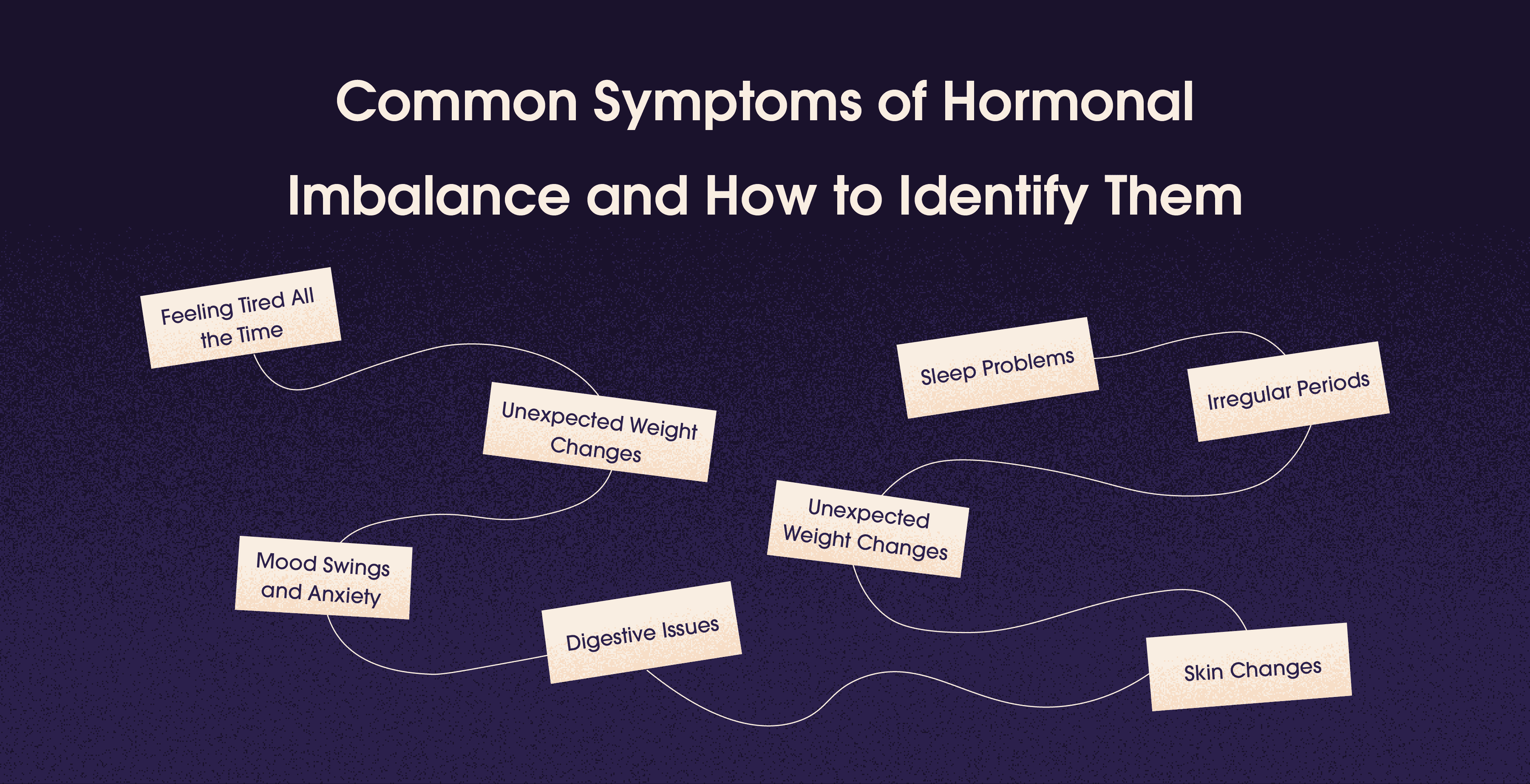


Table Of Contents
Have you ever felt "off" without really knowing why? It could be your hormones acting up! Hormones are like tiny messengers in your body, controlling everything from how you feel to how your body works. When they're out of balance, it can mess with your daily life in ways you might not expect. Let’s dive into some of the most common signs of a hormonal imbalance and how to spot them.
Symptoms Of Hormonal Imbalance In Your Body
Feeling Tired All the Time
Ever wake up feeling tired even after a full night's sleep? It might just not be a bad night; it could be your thyroid hormones that are a little out of whack. They’re in charge of your energy levels, and when they’re off, it can leave you feeling like you need a nap—no matter how much rest you get!
Unexpected Weight Changes
Notice the scale creeping up or down without any big changes to your eating or exercise habits. Hormones like insulin (which deals with sugar) and cortisol (the stress hormone) can make your body store or burn fat differently. If the numbers don't make sense, it might be time to check on those hormone levels.
Mood Swings and Anxiety
Feeling extra irritable or anxious lately? Hormones like estrogen and progesterone can seriously impact how you feel. If you’re riding an emotional rollercoaster, your hormones might be the reason why.
Sleep Problems
Struggling to fall asleep or waking up at odd hours? Stress hormones like cortisol or sleep hormones like melatonin are to blame. If counting sheep isn’t helping, it might be time to dig a little deeper.
Skin Changes
Notice more acne, dry patches, or extra oily skin? Your skin can be a big indicator of what’s happening inside your body. An imbalance in hormones like androgens can lead to breakouts, while low estrogen can dry out your skin.
Irregular Periods
If your periods have become unpredictable—coming too soon, too late, or skipping months—it might be a sign that your hormones like estrogen and progesterone are out of sync. Keeping track of your cycle can help spot any unusual patterns.
Digestive Issues
Believe it or not, your gut can be affected by hormones too. If you’re dealing with constant bloating, diarrhea, or constipation, it might not just be something you ate. High or low levels of certain hormones can mess with your digestion.
Low Libido
Not in the mood for intimacy lately? Hormones like testosterone and estrogen play a big role in sexual desire. If your interest has suddenly dropped, it might be worth talking about to your doctor.
Hair Changes
If you’re noticing more hair on your brush or changes in hair texture, it could be your hormones acting up. Thyroid issues, for example, can cause hair thinning or loss.
Hot Flashes and Night Sweats
Hot flashes aren’t just a menopause thing. If you’re getting unexpected waves of heat or waking up in a sweat, it might be a sign of hormonal changes, especially with estrogen levels.
How to Identify a Hormonal Imbalance
If some of these symptoms sound familiar, here’s what you can do:
Keep a Journal: Jot down your symptoms and any patterns you notice. It might help your doctor see what’s going on.
Consider Blood Tests: A quick blood test can check hormone levels, like thyroid hormones or cortisol. It’s a simple first step to figure out what’s happening.
Look at Your Lifestyle: Stress, diet, and lack of sleep can all throw hormones off. Think about any recent changes in your life that could be contributing to how you’re feeling.
See a Specialist: If the symptoms don’t go away, consider seeing an endocrinologist—a doctor who focuses on hormones. They can offer more targeted solutions.
Final Thoughts
Hormones play a huge role in how we feel every day, so if things seem “off,” don’t ignore it. Pay attention to these symptoms, talk to a healthcare provider, and get to the bottom of it. The sooner you identify a hormonal imbalance, the sooner you can get back to feeling like yourself again!
Have you ever felt "off" without really knowing why? It could be your hormones acting up! Hormones are like tiny messengers in your body, controlling everything from how you feel to how your body works. When they're out of balance, it can mess with your daily life in ways you might not expect. Let’s dive into some of the most common signs of a hormonal imbalance and how to spot them.
Symptoms Of Hormonal Imbalance In Your Body
Feeling Tired All the Time
Ever wake up feeling tired even after a full night's sleep? It might just not be a bad night; it could be your thyroid hormones that are a little out of whack. They’re in charge of your energy levels, and when they’re off, it can leave you feeling like you need a nap—no matter how much rest you get!
Unexpected Weight Changes
Notice the scale creeping up or down without any big changes to your eating or exercise habits. Hormones like insulin (which deals with sugar) and cortisol (the stress hormone) can make your body store or burn fat differently. If the numbers don't make sense, it might be time to check on those hormone levels.
Mood Swings and Anxiety
Feeling extra irritable or anxious lately? Hormones like estrogen and progesterone can seriously impact how you feel. If you’re riding an emotional rollercoaster, your hormones might be the reason why.
Sleep Problems
Struggling to fall asleep or waking up at odd hours? Stress hormones like cortisol or sleep hormones like melatonin are to blame. If counting sheep isn’t helping, it might be time to dig a little deeper.
Skin Changes
Notice more acne, dry patches, or extra oily skin? Your skin can be a big indicator of what’s happening inside your body. An imbalance in hormones like androgens can lead to breakouts, while low estrogen can dry out your skin.
Irregular Periods
If your periods have become unpredictable—coming too soon, too late, or skipping months—it might be a sign that your hormones like estrogen and progesterone are out of sync. Keeping track of your cycle can help spot any unusual patterns.
Digestive Issues
Believe it or not, your gut can be affected by hormones too. If you’re dealing with constant bloating, diarrhea, or constipation, it might not just be something you ate. High or low levels of certain hormones can mess with your digestion.
Low Libido
Not in the mood for intimacy lately? Hormones like testosterone and estrogen play a big role in sexual desire. If your interest has suddenly dropped, it might be worth talking about to your doctor.
Hair Changes
If you’re noticing more hair on your brush or changes in hair texture, it could be your hormones acting up. Thyroid issues, for example, can cause hair thinning or loss.
Hot Flashes and Night Sweats
Hot flashes aren’t just a menopause thing. If you’re getting unexpected waves of heat or waking up in a sweat, it might be a sign of hormonal changes, especially with estrogen levels.
How to Identify a Hormonal Imbalance
If some of these symptoms sound familiar, here’s what you can do:
Keep a Journal: Jot down your symptoms and any patterns you notice. It might help your doctor see what’s going on.
Consider Blood Tests: A quick blood test can check hormone levels, like thyroid hormones or cortisol. It’s a simple first step to figure out what’s happening.
Look at Your Lifestyle: Stress, diet, and lack of sleep can all throw hormones off. Think about any recent changes in your life that could be contributing to how you’re feeling.
See a Specialist: If the symptoms don’t go away, consider seeing an endocrinologist—a doctor who focuses on hormones. They can offer more targeted solutions.
Final Thoughts
Hormones play a huge role in how we feel every day, so if things seem “off,” don’t ignore it. Pay attention to these symptoms, talk to a healthcare provider, and get to the bottom of it. The sooner you identify a hormonal imbalance, the sooner you can get back to feeling like yourself again!
Table Of Contents
Table Of Contents
Table Of Contents
Read More
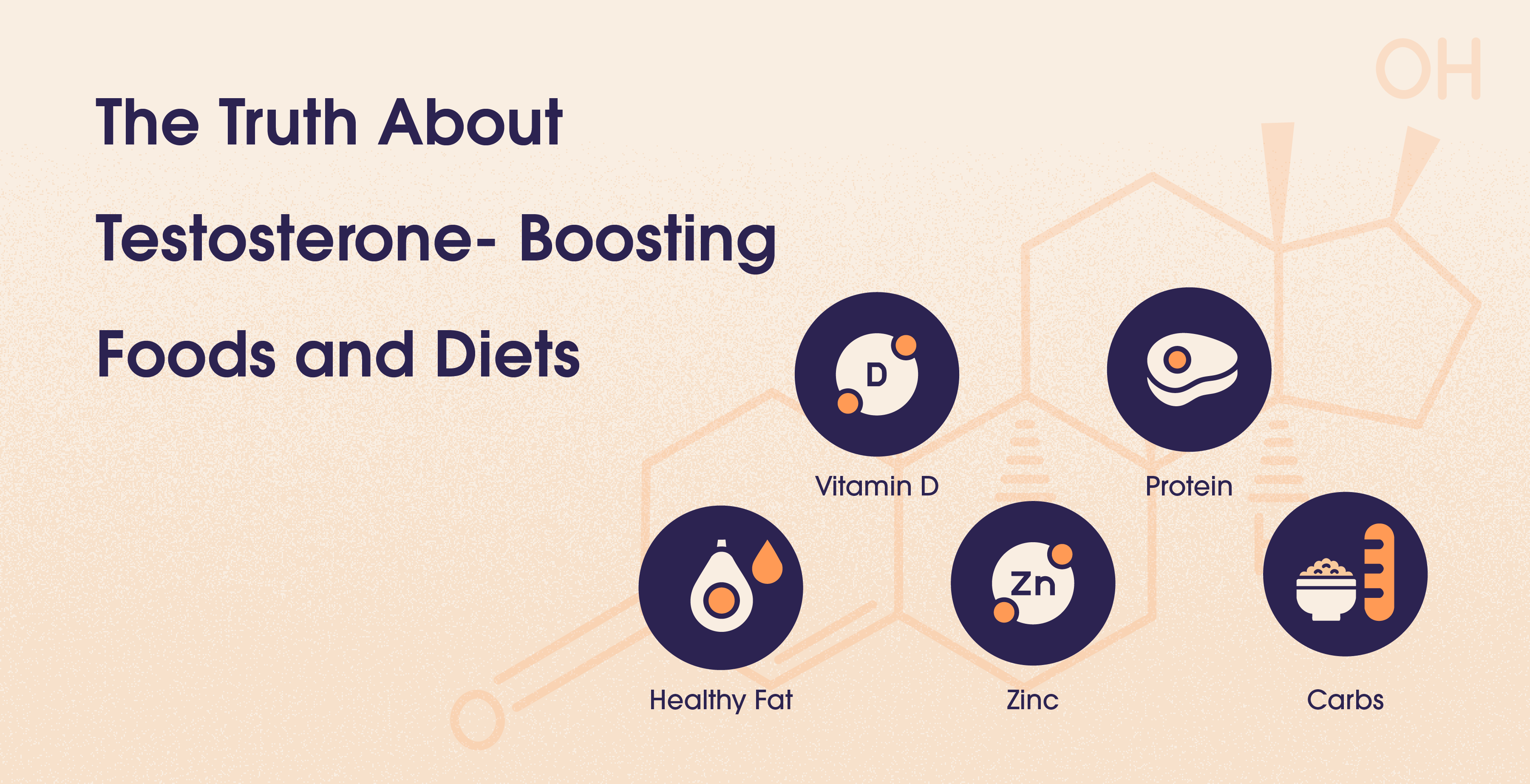

Mar 13, 2025
Sayfali Rawlani
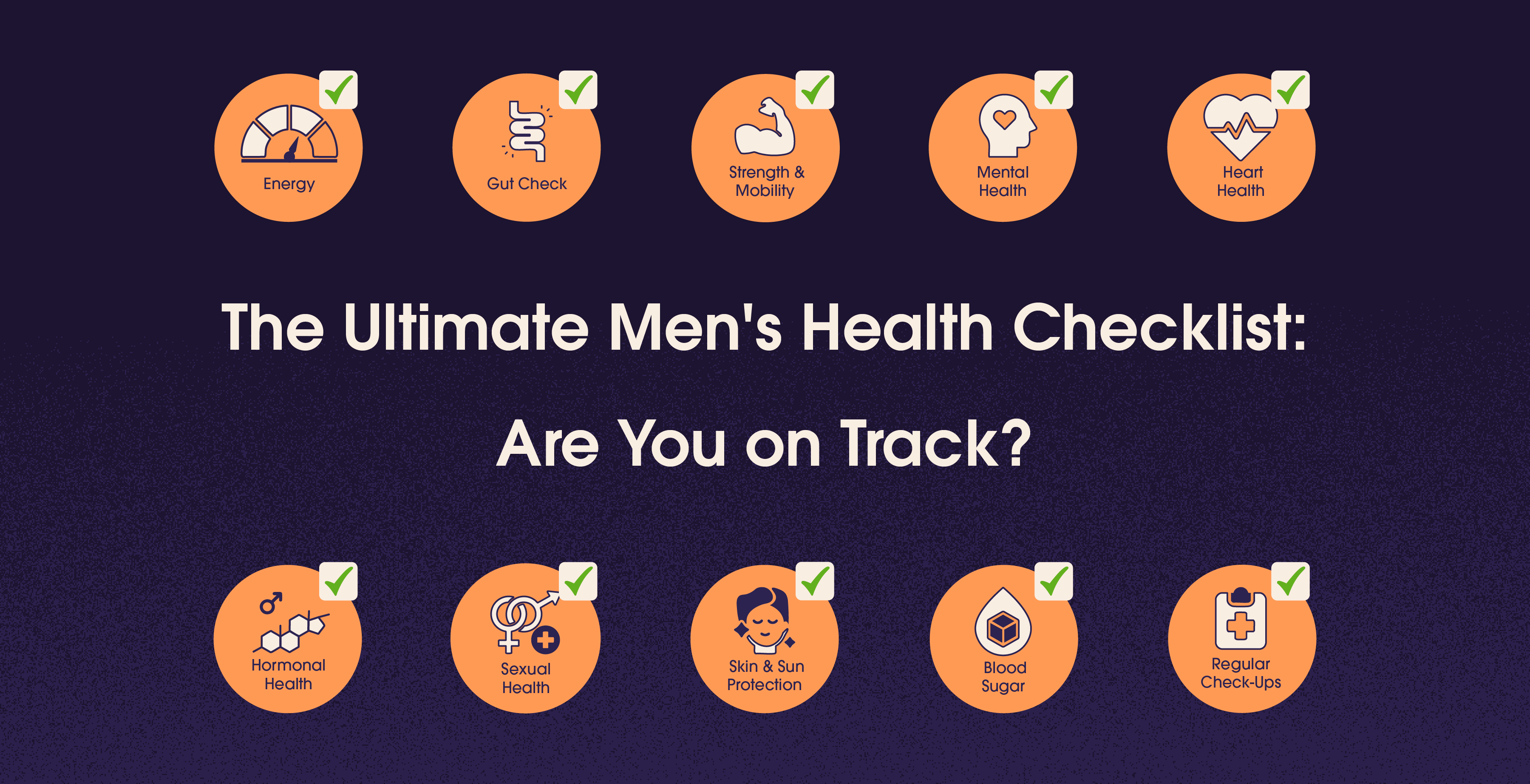

Feb 25, 2025
Sayfali Rawlani
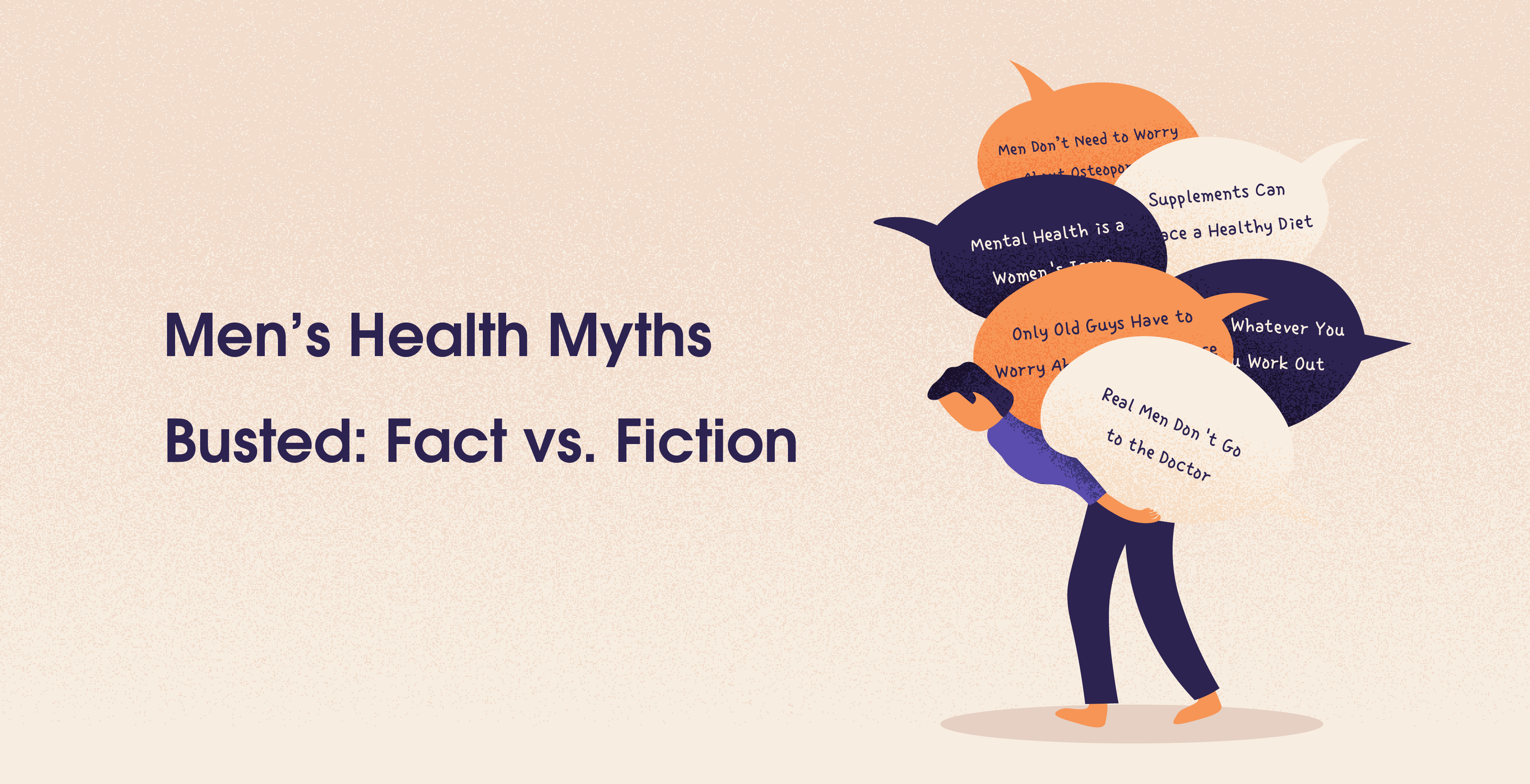

Feb 19, 2025
Sayfali Rawlani



Company
Copyright © 2025 trst health. All right reserved.

